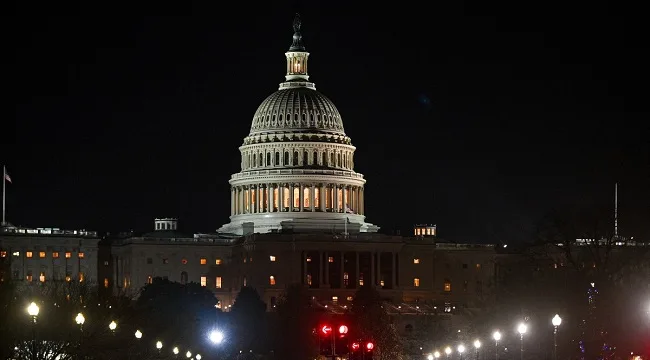US Republicans early Friday approved President Donald Trump’s plan to slash $9 billion from foreign aid and public broadcasting budgets, marking what they described as the first step in a broader effort to rein in federal spending.
The overnight vote in the House of Representatives passed narrowly, 216–213, along mostly party lines, following the Senate’s approval of the measure earlier in the week. With both chambers under Republican control, the bill now heads to the White House, where President Trump is expected to sign it.
“President Trump and House Republicans promised fiscal responsibility and government efficiency,” House Speaker Mike Johnson said shortly after the vote. “Today, we’re once again delivering on that promise.”
The cuts represent a fraction of the $1 trillion in annual savings once promised by tech billionaire Elon Musk, who was appointed to lead the Trump-backed Department of Government Efficiency (DOGE) before his abrupt and acrimonious departure in May. Still, Republicans framed the bill as a critical down payment on Trump’s campaign pledge to rein in what he has called “reckless Washington spending.”
Trump celebrated the vote with characteristic flair, posting in all caps on Truth Social: “REPUBLICANS HAVE TRIED DOING THIS FOR 40 YEARS, AND FAILED… BUT NO MORE. THIS IS BIG!!!”
Much of the $9 billion rescinded had already been approved by Congress, primarily for foreign aid targeting global health crises, conflict recovery, and disaster response. One of the largest domestic cuts was the elimination of $1.1 billion in planned funding for the Corporation for Public Broadcasting (CPB), which supports more than 1,500 local radio and television stations across the U.S., including NPR and PBS.
Conservatives argue that public broadcasting has outlived its necessity in the digital age and accuse its programming of political bias. “We’re not cutting essentials, we’re cutting propaganda,” one senior GOP lawmaker said.
Initially, the bill included $400 million in cuts to a global AIDS program credited with saving over 26 million lives. That funding was restored following pushback from moderate Republicans, reflecting deep internal divisions over how aggressively to pursue austerity measures.
Democrats sharply criticized the move, accusing Republicans of undermining bipartisan agreements and endangering vital services.
“Instead of protecting the health, safety, and well-being of the American people, House Republicans have once again rubber-stamped Donald Trump’s extreme, reckless rescissions legislation,” said House Minority Leader Hakeem Jeffries in a joint statement with other top Democrats.
They warned that the vote sets a dangerous precedent for future “rescissions packages” — measures that cancel already-approved funding — and could jeopardize negotiations to keep the government funded beyond September.
“Tonight’s vote makes it clear that House Republicans are determined to march this country toward a painful government shutdown later this year,” the statement read.
Though Democrats are in the minority, they still hold considerable leverage in upcoming budget negotiations. In the Senate, where 60 votes are required to pass most spending legislation, Republicans control only 53 seats.
Senate Minority Leader Chuck Schumer called the cuts “a dark day for any American who relies on public broadcasting during floods, hurricanes, tornadoes, and other disasters.”
The White House signaled that more budget-slashing proposals are on the horizon. Budget Director Russell Vought said at a Thursday event hosted by the Christian Science Monitor that the administration plans to send another rescissions package to Congress “soon.”
As the federal government approaches another fiscal deadline, the battle lines over spending priorities are hardening — with Trump’s fiscal agenda gaining momentum and opposition from Democrats intensifying.
AFP


